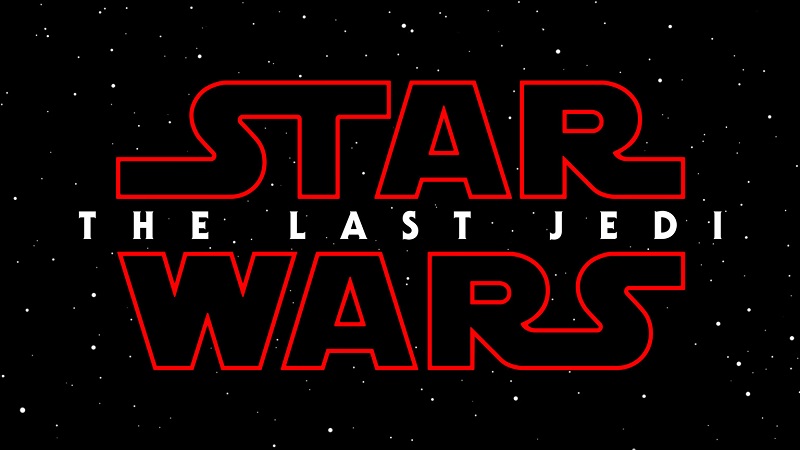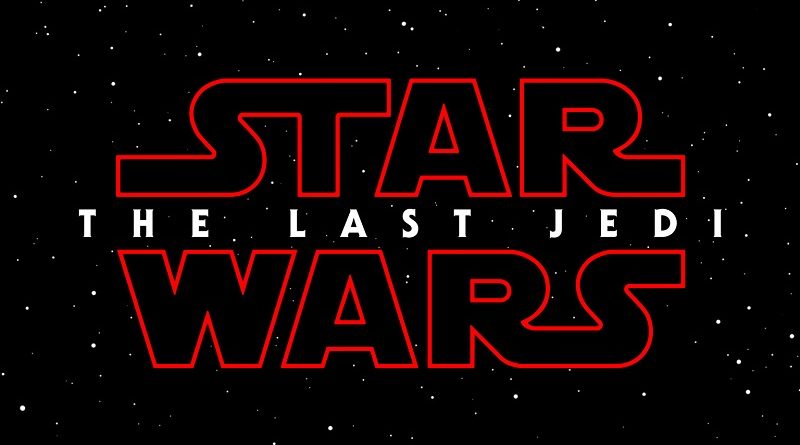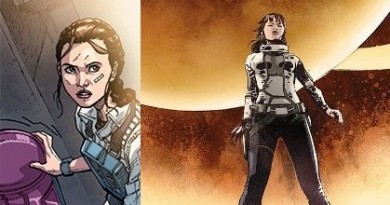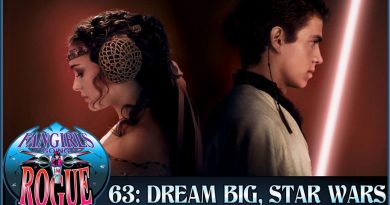Hyperspace Theories Episode 25: The Last (Rogue One) Jedi
 This month’s episode of Hyperspace Theories continues our discussion of storytelling lessons to be learned from Rogue One. In addition, we look ahead to the next Star Wars film and share our thoughts on the legacy of Carrie Fisher.
This month’s episode of Hyperspace Theories continues our discussion of storytelling lessons to be learned from Rogue One. In addition, we look ahead to the next Star Wars film and share our thoughts on the legacy of Carrie Fisher.
We begin with our reactions to the newly revealed title of Episode VIII: The Last Jedi. The title has connections to The Force Awakens, of course, as well as to familiar themes from other Star Wars stories and the Legends tales. We also ponder the potential implications of the red lettering used in the title announcement.
In our meta segment on speculating wisely, we evaluate the role of movie trailers in speculation on future Star Wars films. For both that film and The Force Awakens, Lucasfilm has released trailers which seek to convey the tone, themes, and feel of the story but which include scenes and dialogue that do not appear in the final film. We discuss the merits and risks of this approach, particularly if the franchise is trying to maintain a lockdown on spoilers. On the other hand, it is now clear that both The Force Awakens and Rogue One were undergoing major editing, reshoots and pickups, dialogue replacement, and others changes in the months, even final weeks, before the films’ releases. With Rogue One in particular, some of the seeming inconsistencies in the characterization of Jyn Erso in the early trailers compared to the later trailers and advertisements may have arisen from the changes made during Tony Gilroy’s significant reworking of the story. This raises a comparison to Star Wars Rebels, which, like The Clone Wars before it, has a consistent track record of trailers that include scenes and dialogue matching the final episodes to air. We wonder whether Rian Johnson’s The Last Jedi, which already is deep into editing and seems to have avoided the mad dash revising of the previous two films, will have trailers and marketing more comparable to Rebels than those movies.
Our segment on world-building also revisits the production process of Rogue One and its ramifications on the story and characters. Relying on the information revealed in The Art of Rogue One, as well as a number of recent interviews by the film’s editors, we discuss major shifts in the development process. The stage of development for the characters and story of Rogue One include the initial treatment and sizzle reel by John Knoll, creative development in 2014 led by Gareth Edwards and Gary Whitta culminating in a screenplay by Whitta, a script rewrite by Chris Weitz (including, among other things, the creation of Chirut and Baze), principal photography by Edwards in 2015, extensive script revisions and reshoots from Tony Gilroy in the summer of 2016, and then final editing of the film into its ultimate form. We discuss how these instances of significant rethinking, over a relatively short span of time, impacted the tone, feel, and internal consistency of the plot and characters.
This month’s storytelling segment is dedicated to Carrie Fisher. In addition to talking about her importance as Leia Organa, both within the story and to fandom and the real world, we also share our thoughts on Carrie Fisher as a storyteller herself. From her script doctoring to Postcards from the Edge and The Princess Diarist, Carrie Fisher could make us laugh and cry, and sometimes both at the same time.
If Postcards from the Edge had been written by anyone other than Carrie Fisher, we’d be hailing them as a great American novelist. Go read.
— Jeff Greenstein (@blue439) December 27, 2016
Related Links
- John Gilroy and Colin Goudie interview with Yahoo Movies UK
- John Gilroy interview with io9
- John Gilroy interview with com
- John Gilroy interview with Yahoo Movies
- Ben Mendelsohn remarks via io9
- Gareth Edwards remarks via Vulture
- Jenny Nicholson YouTube video “Top 10 Worst Reasons You Liked Rogue One“
- ABC’s Nightline coverage via io9
- Photographs showing deleted content via Slashfilm
Contact Information:
- Hyperspace Theories: Twitter @HyperspacePod
- Tricia Barr: Twitter @FANgirlcantina; email Tricia@fangirlblog.com
- B.J. Priester: Twitter @RedPenofLex; email Lex@fangirlblog.com
- Kay: Twitter @Geek_Kay; email Kay@fangirlblog.com
- Hyperspace Theories: The Curious Case of Kathleen Kennedy’s Retirement - March 10, 2025
- Hyperspace Theories: SKELETON CREW Ahoy! - December 29, 2024
- Hyperspace Theories: WICKED Part I Rises to the Moment - December 6, 2024










